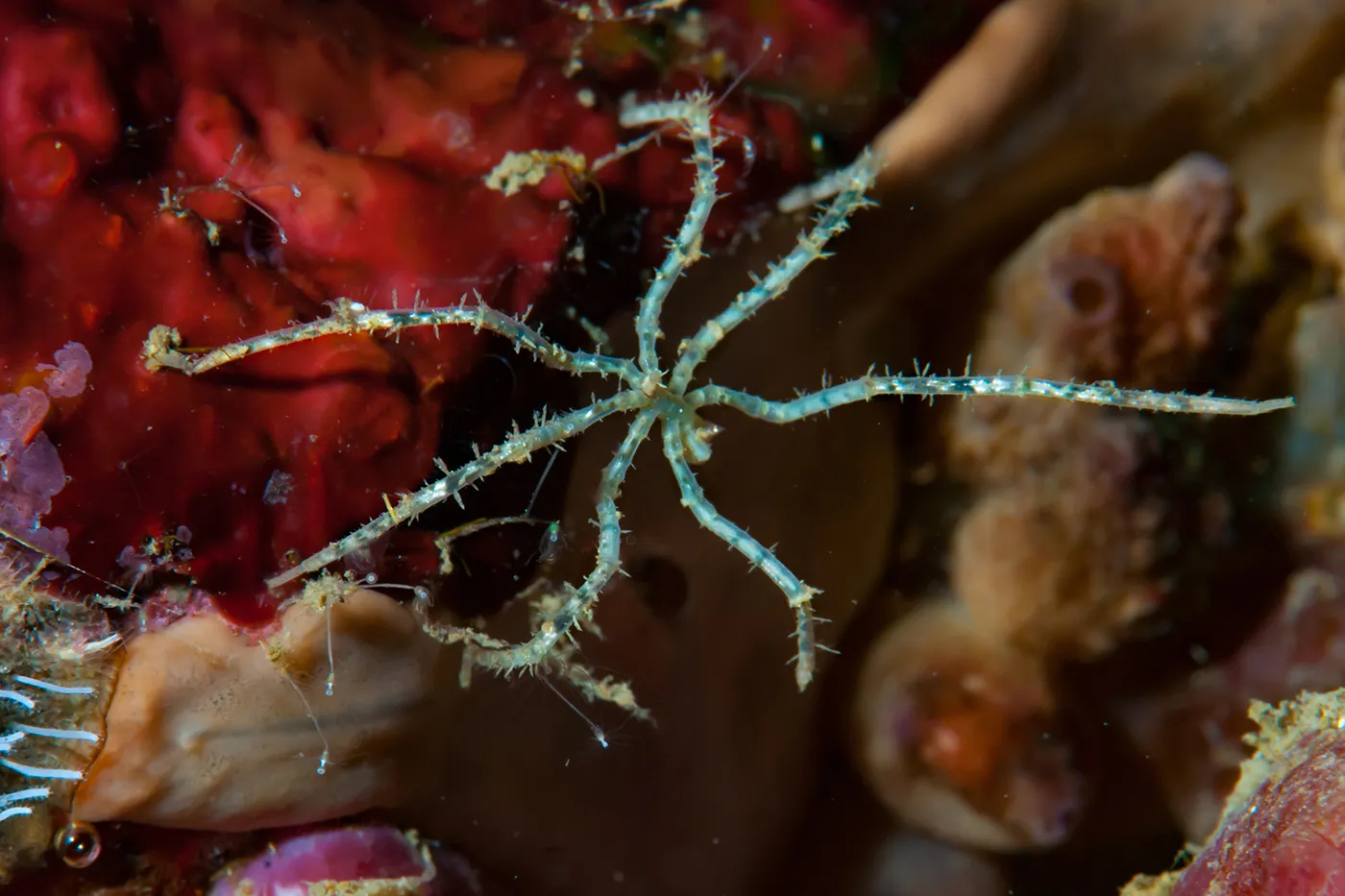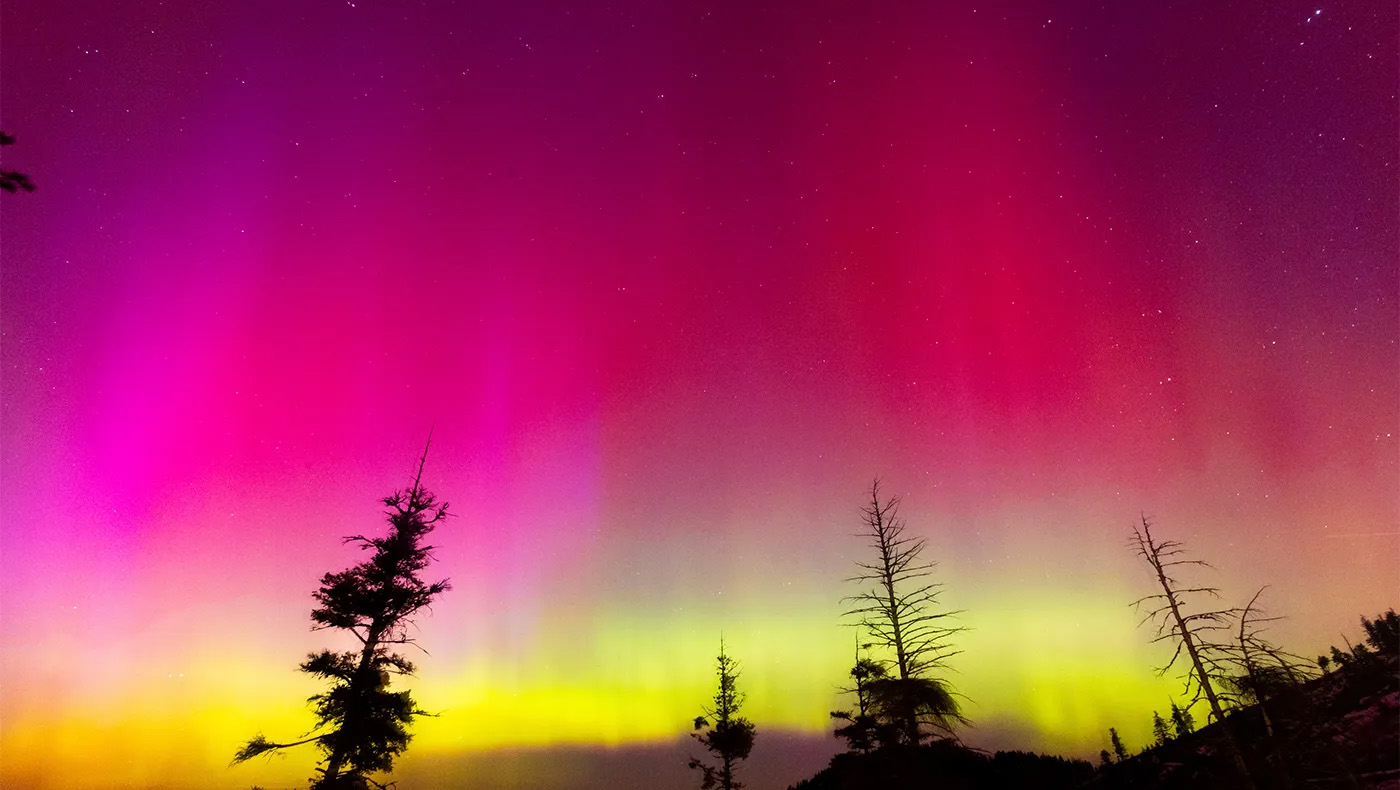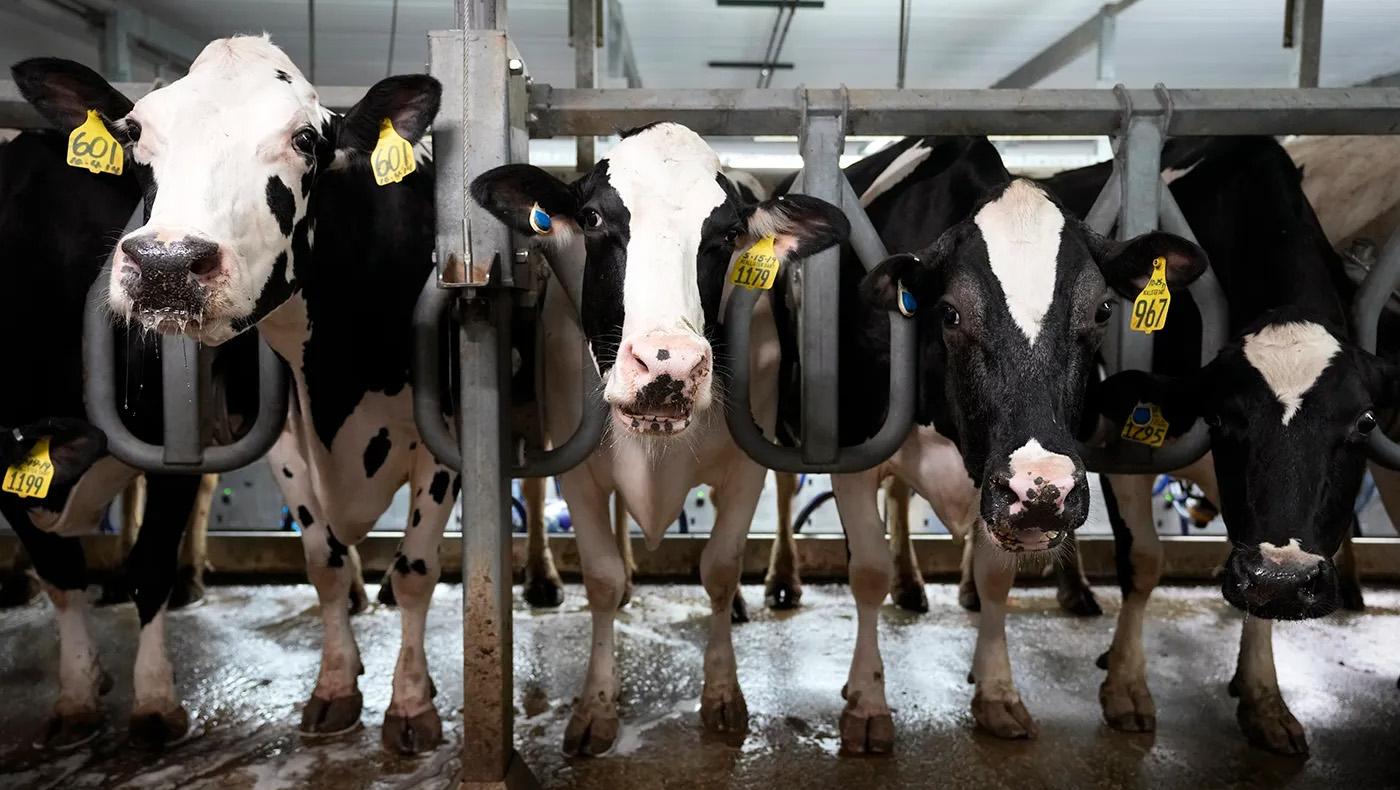COS News
News

Connie Phong wants to know how an animal adapted to live in a highly specialized environment — just below the freezing point for seawater — responds to warming oceans.
How Northeastern scientists are using Antarctic sea spiders to study life on the edge
News

Fleury Augustin Nsole Biteghe has identified a way to target two of the deadliest cancer types with chemotherapy drugs but without the harms associated with chemotherapy.
Northeastern researcher uses light to target and kill cancer cells
Showing 205 results in Physics

A geomagnetic storm is hitting the northern part of the U.S. Here’s how the solar event may impact you
Jonathan Blazek, assistant professor of physics, said the geometric storm won’t have a severe impact on technology.

Scientists recreate genome of 52,000-year-old freeze-dried woolly mammoth
Frozen in Siberia, this mammoth was remarkably preserved at the microscopic level, Northeastern researchers discovered. Its DNA had remained the same for thousands of years, frozen as “chromoglass.”

What is the “mini moon” that is now orbiting Earth? Astrophysicist explains small cosmic guest — and the bigger one that’s on the horizon
For two months, a small asteroid will join Earth’s orbit, a common yet little known occurrence. However, a Northeastern astrophysicist has her eyes on another asteroid that will be a much closer call for the planet.

Plan to reopen Three Mile Island plant could be ‘rebirth’ of nuclear energy, Northeastern experts say
A plan to reopen a reactor at the Three Mile Island nuclear power plant could rejuvenate the nuclear energy sector in the United States.

Welcome to the new College of Science Faculty!
We are delighted to welcome new faculty members with primary appointments in the College of Science whose teaching and research builds the Good Power of Science, trains the next generation of science professionals, and solves crucial research challenges.

What happens to a person when they’re stuck in space?
Experts said the astronauts’ physical and mental health may be impacted by their time in space.

Giant cosmic question answered. Northeastern astrophysicist explains the science behind the image captured by the Webb telescope
A Northeastern astrophysicist says the image will provide new insights into the universe’s adolescence and possibly the answer to an age-old question that remains a mystery: How do galaxies get created?

Astronauts stranded in space: Unexpected eight-month stay highlights the risks of space exploration, experts say
“This is one bump in the road on mankind’s inevitable path to the stars,” said Northeastern cosmology expert Jacqueline McCleary.

New insight into antibody shows how it could offer sweeping protection against evolving SARS-CoV-2 virus
Researchers at Northeastern say they’ve discovered how an antibody could provide broad protection against severe acute respiratory syndrome coronavirus-2 (SARS-CoV-2).

How Northeastern researchers are helping predict the outbreak of bird flu on US dairy farms
Bird flu has been detected in 169 livestock herds on dairy farms in 13 states. Northeastern researchers are creating a “risk map” of which farms might be next.

Galaxy clusters could be used as natural dark matter colliders to understand nature of invisible particles
Observing groups of galaxies, where dark matter naturally collides, could help scientists pinpoint what kind of particle makes up dark matter, a Northeastern University paper finds.

Pran Nath, Northeastern’s longest-tenured professor, pursues the beautiful mysteries of physics
After 58 years, the world-renowned researcher continues to explore the secrets of the universe. His explorations are a mystery to most of us, conducted with a stream-of-consciousness array of mathematical symbols reinforced by terminology that sounds like English taken to the third power.